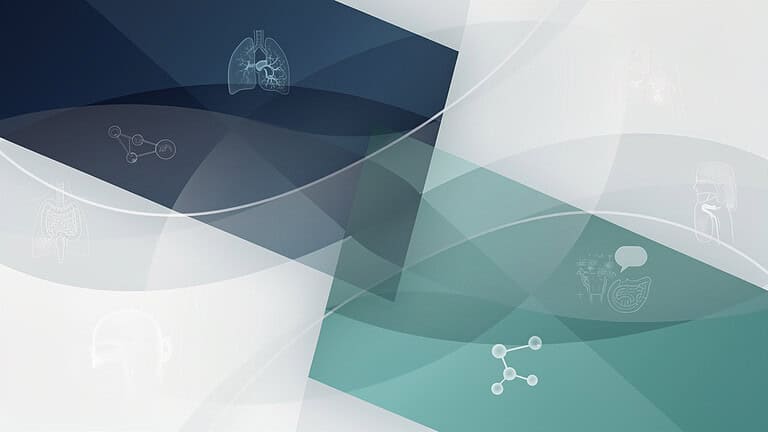Are you preparing for the AMC Clinical Exam or PESCI and feeling overwhelmed by the sheer volume of information? In 2024, traditional study methods may no longer cut it. International Medical Graduates (IMGs) are increasingly turning to modern, AI-powered tools to enhance their preparation and increase their chances of success. This article delves into the world of digital study methods, providing a comprehensive guide to the tools and strategies that are transforming medical exam preparation.
This guide is tailored for IMGs navigating the Australian medical exam landscape, offering practical insights into leveraging technology for efficient learning, knowledge management, and exam success. We’ll explore how to structure your study timeline, avoid common mistakes, and access resources that truly make a difference.
The Evolution of Medical Knowledge Management
The way medical professionals acquire and manage knowledge is undergoing a significant shift. The sheer volume of information, coupled with the need for quick recall and application, demands more efficient strategies than traditional note-taking and rote memorization.
Traditional vs. Modern Study Methods
Traditional study methods often involve passive reading, linear note-taking, and repetitive memorization. While these methods have their place, they can be time-consuming and ineffective for long-term retention and application.
- Limitations of Conventional Note-Taking: Traditional note-taking often results in fragmented information, making it difficult to see connections between different concepts.
- The Shift Towards Digital Knowledge Management: Modern study methods leverage digital tools to create interconnected knowledge networks, facilitating deeper understanding and easier recall.
- Impact of AI on Medical Education and Exam Preparation: AI-powered tools are revolutionizing medical education by providing personalized learning experiences, automated study schedules, and intelligent feedback.
The “Second Brain” Approach
The “second brain” approach, popularized by personal knowledge management (PKM) systems, offers a powerful alternative. PKM involves creating a digital repository of knowledge that mirrors the way the human brain works, allowing for intuitive organization and retrieval of information.
- Introduction to Personal Knowledge Management (PKM): PKM systems like Obsidian enable users to create interconnected networks of notes, linking related concepts and ideas.
- How Medical Professionals Can Benefit from PKM: Medical professionals can use PKM to organize clinical cases, research articles, and exam notes in a way that facilitates deeper understanding and easier recall.
- Dr. Roman Pathak’s Personal Experience: Dr. Roman Pathak, a leading expert in AMC Clinical exam preparation, shares his personal experience with digital transformation, highlighting the tools and strategies that have helped him and his students succeed.
Essential Digital Tools for Medical Exam Preparation
Several digital tools are essential for modern medical exam preparation, each offering unique features and benefits.
Obsidian for Medical Knowledge Management
Obsidian is a powerful Markdown-based note-taking application that allows users to create interconnected networks of ideas through backlinking and graph visualizations. It’s like building your own personal Wikipedia, tailored to your specific needs and interests.
- Core Features: Markdown support, backlinking, local storage, and customizable organization.
- Setting Up: Create a “vault” as your central repository for all medical knowledge.
- Interconnected Notes: Use backlinking to connect related concepts, creating a web of knowledge.
- Organization: Organize notes by subject, clinical case, or exam topic using folders and tags.
- Case Study Example: Structure clinical cases with templates (history, examination, diagnosis, management) and link related cases/concepts.
Readwise Reader for Medical Literature
Readwise Reader is a powerful tool for managing and consuming medical literature. It allows users to highlight and annotate articles, PDFs, and other resources, then sync those highlights and notes to Obsidian for further organization and analysis.
- Integration: Connects with various medical journals and resources for direct import.
- Highlighting/Note-Taking: Capture key information and insights efficiently.
- AI Summaries (Ghostreader): Quickly grasp complex medical texts and research papers.
- Research Management: Use search and tags to retrieve specific information quickly.
- Exam Prep Application: Highlight key points in articles and sync to Obsidian for review.
Anki for Medical Knowledge Retention
Anki is a flashcard program that uses spaced repetition to help users retain information over the long term. It’s excellent for memorizing key facts, concepts, and clinical guidelines.
- Spaced Repetition: Review information at increasing intervals to reinforce memory.
- Effective Flashcards: Follow the Minimum Information Principle (one concept per card).
- Deck Organization: Organize decks by subject, case, or topic using tags.
- Long-Term Retention: Review cards regularly, adjusting intervals as needed.
- Clinical Case Flashcards: Create cards testing diagnosis, management, and complications.
AI-Powered Study Enhancement
Artificial intelligence is transforming medical education, offering new ways to enhance learning, improve efficiency, and personalize the study experience.
Advanced AI Tools for Medical Learning
Several AI-powered tools are specifically designed for medical learning, offering features like personalized study schedules, intelligent feedback, and automated content creation.
- Overview: Explore tools like ChatGPT, Pathway AI, and Merlin AI.
- ChatGPT: Generate practice questions, summarize topics, get personalized feedback.
- Pathway AI: Provides evidence-based clinical decision support for diagnosis and management.
- Merlin AI: Quickly summarize and analyze medical literature, extracting key insights.
- Efficiency Case Study: Automate tasks (summarizing, flashcards, questions) to free up time for deeper learning.
Integration Strategies
Key Strategy: Integrate tools effectively for a seamless workflow. Use Obsidian as the central hub, Readwise for literature, and Anki for retention.
- Workflow Optimization: Automate syncing, summarizing, and flashcard creation.
- Time Management: Use digital tools to track study time, set goals, and stay scheduled.
- Avoiding Pitfalls: Verify AI-generated information; always apply clinical judgment.
- Success Stories: Learn from other IMGs who have successfully used these digital tools.
Practical Implementation Guide
Implementing these digital study methods requires a practical approach, starting with setting up your tools and creating a sustainable study system.
Getting Started
- Setup: Follow step-by-step guides for Obsidian, Readwise Reader, Anki, etc.
- Resources: Identify needs (software, hardware, literature access).
- Time Investment: Be realistic about the learning curve and implementation time.
- Cost Analysis: Compare tool costs and choose options fitting your budget.
Creating a Sustainable Study System
- Daily Workflow: Incorporate digital tools into your daily study routine.
- Weekly Reviews: Schedule sessions to reinforce knowledge and identify weak spots.
- Monthly Assessments: Track progress and adjust your study plan.
- Long-Term Maintenance: Keep updating notes, reviewing flashcards, and exploring new tools.
Future Trends and Considerations
The landscape of medical education is constantly evolving, with new technologies and approaches emerging all the time.
- Emerging Tech: Stay informed about VR, AR, and personalized learning platforms.
- Exam Changes: Anticipate changes in exam formats/content and adapt study methods.
- New Tools: Continuously explore and experiment with new tools and strategies.
- Balance: Maintain a balance between digital and traditional methods.
Conclusion
Modern AI tools are transforming medical exam preparation, offering new ways to enhance learning, improve efficiency, and increase your chances of success. By leveraging tools like Obsidian, Readwise Reader, Anki, and AI-powered study aids, you can create a personalized, effective study system that helps you achieve your goals.
Action Steps for Implementation
- Set up your digital study environment with Obsidian, Readwise Reader, and Anki.
- Start importing medical literature and creating interconnected notes in Obsidian.
- Create effective flashcards in Anki and review them regularly using spaced repetition.
- Explore AI-powered study tools (e.g., ChatGPT) and integrate them into your workflow.
- Continuously refine your study system based on your progress and feedback.
By embracing these modern tools and strategies, you can navigate the Australian medical exam landscape with confidence and achieve your dreams of practicing medicine in Australia.


